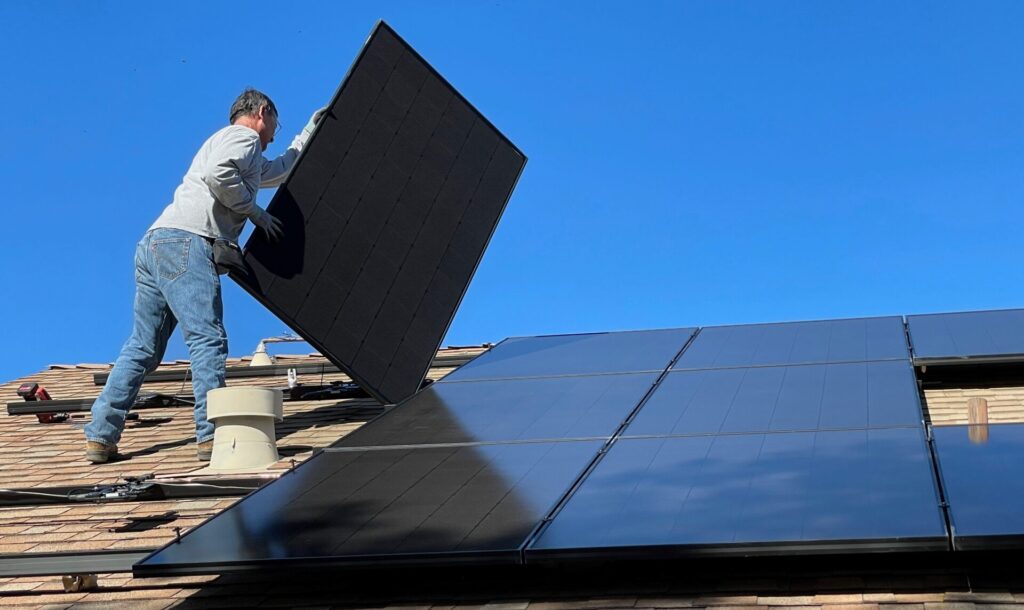Understanding what the Inflation Reduction Act means for U.S. climate policy

Last week, U.S. Senate Majority Leader Chuck Shumer (D-NY) and Senator Joe Manchin (D-WV) announced an agreement on the Inflation Reduction Act. Despite its unassuming title, the bill includes substantial and much-needed action to address climate change. In fact, according to the Democratic Party’s summary of the bill’s energy and climate aspects, it will “put the U.S. on a path to roughly 40% emissions reduction by 2030, and would represent the single biggest climate investment in U.S. history, by far.”
An analysis of the bill’s provisions by the Rhodium Group supports this claim. In total, the energy security and climate-related portions of the Inflation Reduction Act will cost $369 billion.
These funds are slated to go toward:
- Rebates and tax credits for consumers to (1) retrofit and electrify appliances and (2) bring down the cost of heat pumps, solar panels, and other installations that make our homes more energy-efficient
- Electric vehicle (EV) tax credits: The bill secures a $7,500 tax credit for purchases of new EVs, and $4,000 for purchases of used EVs.
- Tax credits to the energy industry, specifically producers of solar panels, batteries, and wind turbines
- Tax credits worth $10 billion to build new clean energy manufacturing facilities, and additional funds to equip existing car manufacturing plants to build EVs
- “Breakthrough” energy research by National Labs
- A slew of tax credits and grants to decarbonize the U.S. transportation and electric industries
- An important Methane Emissions Reduction Program that will reduce leaks of this potent greenhouse gas from the natural gas industry. This will address both climate change and human health, as methane contributes to ozone pollution
- $60 billion in investments to address key environmental justice and climate-related public health issues, including affordable and accessible transportation and air pollution
- Billions of dollars for ecosystem conservation to reduce forest fires and restore coastal habitats
- $20 billion for “climate-smart” agriculture to support farmers and landowners
Alex Yu, a CEES affiliate and assistant professor in the Wake Forest Department of Economics who studies environmental economics, says the Inflation Reduction Act should accelerate the country’s transition to clean and renewable energy sources and reduce our fossil fuel use.
“A lot of firms are adapting their production processes in order to reduce carbon emissions, but such green technologies often require a lump sum investment and might take years to break even and make a positive profit. The same is true for households that would like to install solar panels and purchase electric vehicles. Overall, the Act would give an extra incentive for firms and households to make this green transition today,” she explains.
Yu notes that the Inflation Reduction Act aligns with the U.S. commitment to slash our carbon emissions under the Paris Climate Agreement, which President Biden reaffirmed in February 2021 after former President Trump withdrew the country from the accord in November 2020. “This green transition will happen globally,” she says, “but the question is when.”
“…the Act would give an extra incentive for firms and households to make this green transition today”
In Yu’s opinion, which is shared by virtually all climate scientists and many economists, the sooner the better. If we wait, “the legacy cost of the dependency on fossil fuel and high inflation as a result of the demand for fossil fuel energy will continue, as well as the cost of climate change itself, incurred due to the increasing number of natural disasters and severe weather events,” she says.
The next step for the Inflation Reduction Act is to be put in front of the Senate for a full vote. In the meantime, it will likely change a bit as senators add, remove, and tinker with different provisions (including in the non-climate portions of the bill, many of which deal with health care). Then, it will go to the House of Representatives for their approval.

